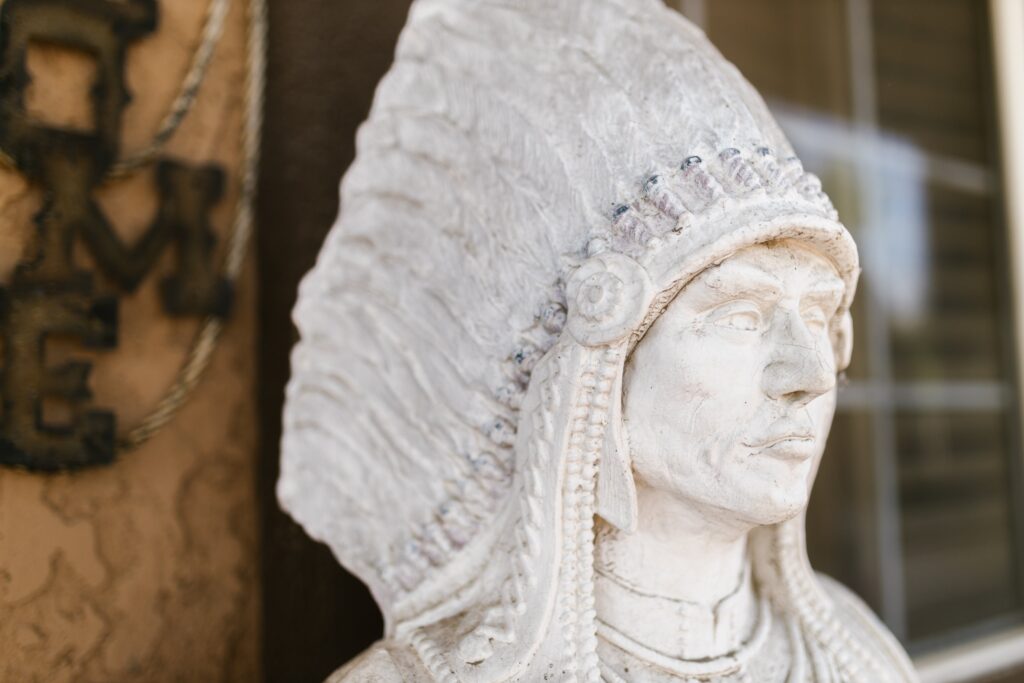Decolonization & Mental health
With last week’s Thanksgiving festivities, one thing that’s been on all of our mind’s is the celebration of this holiday and whether or not it is ethical. I grew up drawing turkey hands in elementary school, not ever really learning about what Thanksgiving was really all about. While it’s a period for gratitude, family, and reflection, it’s crucial to acknowledge the less joyful aspects of history, particularly the impact of colonization. The presence of the turkey on the table extends beyond gratefulness; it serves as a reminder to approach different cultures with respect and strive for a deeper understanding of our collective past, particularly the complexities of colonization.
The meaning of Thanksgiving of being thankful and practicing gratitude is such a polarity from the injustices that people have faced on this day. As we continue to recognize this holiday, it is important to recognize it as Indigenous People’s Day as well and celebrate the people who unjustly pushed out of our country without a second thought. Understanding the impact of colonization means looking at how some groups of people were treated unfairly. Decolonization is like taking apart the effects of colonization. It’s about giving a voice to those who were silenced and recognizing the strengths and stories of different cultures.
When we talk about mental health, decolonization plays a big role. The history of colonization brought about a lot of pain and challenges for many communities. Decolonization in mental health means finding ways to heal from this history. It’s about making sure that everyone’s background is respected in how we think about and support mental well-being.
This matters because when we acknowledge and work towards decolonization, we’re building a more inclusive and understanding world. It’s not just about the past; it’s about making sure everyone’s story is valued today. By supporting the decolonization of mental health, we’re taking steps to create a future where everyone can feel heard, understood, and supported in their well-being.

Understanding decolonization
Decolonization means undoing the long-lasting effects of colonization. Colonization happened when powerful countries took over others, leading to economic gaps, loss of culture, and unfair systems. These effects are still seen in how things work today, like in institutions and societal structures. Often, history is told from one perspective, ignoring the views of indigenous people.
To really get what decolonization is about, we need to face these issues. This means challenging old biases, rethinking how we tell stories about the past, and changing systems that keep unfair colonial ideas alive.
To make things more just, we must recognize and deal with the results of colonization. This includes unfair economic differences, cultural loss, and the inequalities that are still around today. It’s like breaking down old ideas and making room for new, fairer ones. This step is very important in creating a fair and just society. It means looking at history in a new way, questioning old beliefs, and taking apart systems that keep unfair colonial ideas alive.
Colonization didn’t just affect money and politics; it hurt people’s culture and mental health too. Indigenous communities went through a lot during colonization, like losing their culture, language, and traditional ways of life.
When we talk about decolonization in mental health, it means helping people heal from these tough times. This involves letting different cultures do their own thing, respecting their beliefs, and recognizing how strong and resilient communities are, even after going through tough times. Understanding these effects is super important for making sure everyone’s mental health is taken seriously.
decolonization & mental health
Exploring how colonization connects to mental health is crucial. The way communities were treated during colonization directly affects how people feel today. Mental health is not just about individual feelings; it’s also about understanding the bigger picture of how history impacts well-being.
Colonization left deep scars that didn’t just fade away. Trauma, or deep emotional wounds, happened during those times and has been passed down through generations. This intergenerational effect means that the pain experienced by ancestors can still be felt today. Decolonization in mental health recognizes this and aims to help break the cycle of trauma.
Not everyone faces mental health challenges in the same way. Colonized populations often experience more difficulties. It’s like some people had a head start in a race while others had to carry heavy weights. Decolonization means making sure everyone has a fair shot at good mental health by addressing these disparities. This is about creating a world where everyone’s well-being is valued equally.

Cultural competence in mental health
Taking care of mental health isn’t one-size-fits-all. Different cultures have unique ways of understanding and dealing with mental well-being. Culturally sensitive mental health care means respecting and understanding these differences. It’s like offering a helping hand that understands and appreciates the diverse ways people approach their mental health.
While the idea of culturally sensitive care is important, it’s not always easy to put into practice. There can be challenges in understanding diverse perspectives, language barriers, and ingrained biases that need to be overcome. It’s like learning a new language – it takes effort, but the result is a better connection and understanding.
To bridge these gaps, mental health services need strategies to become culturally competent. This includes training mental health professionals to be aware of diverse cultural practices, encouraging open communication, and creating spaces that are welcoming to everyone. It’s like setting up a table where everyone can bring their unique dish – a place where different cultures are not just acknowledged but celebrated.
At We Rise, we strive to do exactly that. We offer culturally sensitive therapy services and are constantly seeking to grow our skills in managing mental health from this intersectional identity perspective.
Decolonization in mental health policies
To truly embrace decolonization in mental health, we need to look at existing policies. Some mental health practices may unknowingly carry colonial roots, perpetuating unequal treatment. Reviewing these policies is like checking the foundation of a house – ensuring it is built on fairness and inclusivity.
After identifying colonial roots, the next step is change. Proposing new ways of doing things, rooted in fairness and understanding, is crucial. It’s like updating an outdated map – making sure it accurately reflects the diverse landscapes of people’s experiences and needs.
Advocacy plays a key role in making these changes happen. It involves raising awareness, influencing decision-makers, and ensuring that mental health policies are inclusive and fair for everyone. It’s like being the voice that speaks up in a crowded room, making sure that everyone is heard and considered.
Decolonizing mental health policies is essential for creating a system that works for everyone. It’s about breaking down old structures that might not be fair and building new ones that prioritize the well-being of all individuals, irrespective of their cultural background. This advocacy is a powerful step toward a mental health landscape that truly values and respects the diversity of human experiences. It’s going to be incredibly difficult to break down entire systems of oppression, but it is worth the benefits of a more just world for all identities.

Education & Awareness
Promoting understanding of decolonization in mental health is like giving people the right tools to build a more inclusive and compassionate world. By teaching the history and impact of colonization, we empower individuals to challenge stereotypes and contribute to a more just mental health system.
Talking openly about the impact of colonization is crucial. It’s like opening a window to let in fresh air. Encouraging discussions breaks down barriers, allowing people to share their experiences and perspectives. This openness fosters empathy and understanding, essential ingredients for creating a mental health environment that respects diverse narratives.
Every culture has unique perspectives on mental health. Fostering awareness of these nuances is like learning a new language – it allows us to communicate and support each other more effectively. Recognizing that different communities may express and cope with mental health challenges in distinct ways is vital for creating a truly inclusive mental health discourse.
In the journey towards decolonization, education and open conversations are catalysts for change. By promoting awareness and understanding, we create a mental health landscape that respects, embraces, and uplifts the diverse voices that make up our global community.
Though Thanksgiving is now long gone and we have entered official holidays-Christmas-winter season, decolonization and mental health is an intersection that will forever be further explored and deconstructed to understand our intersectional identities. We urge you to continue exploring how the impact of decolonization has affected your life in regards to your mental health while on your personal growth journey.
